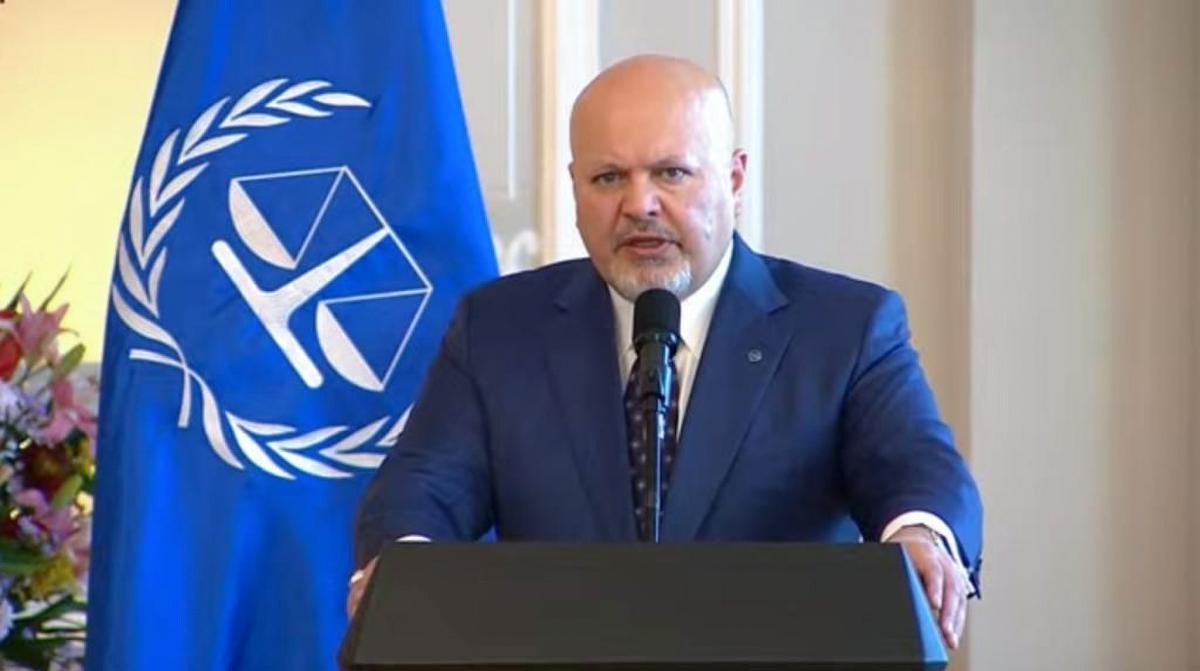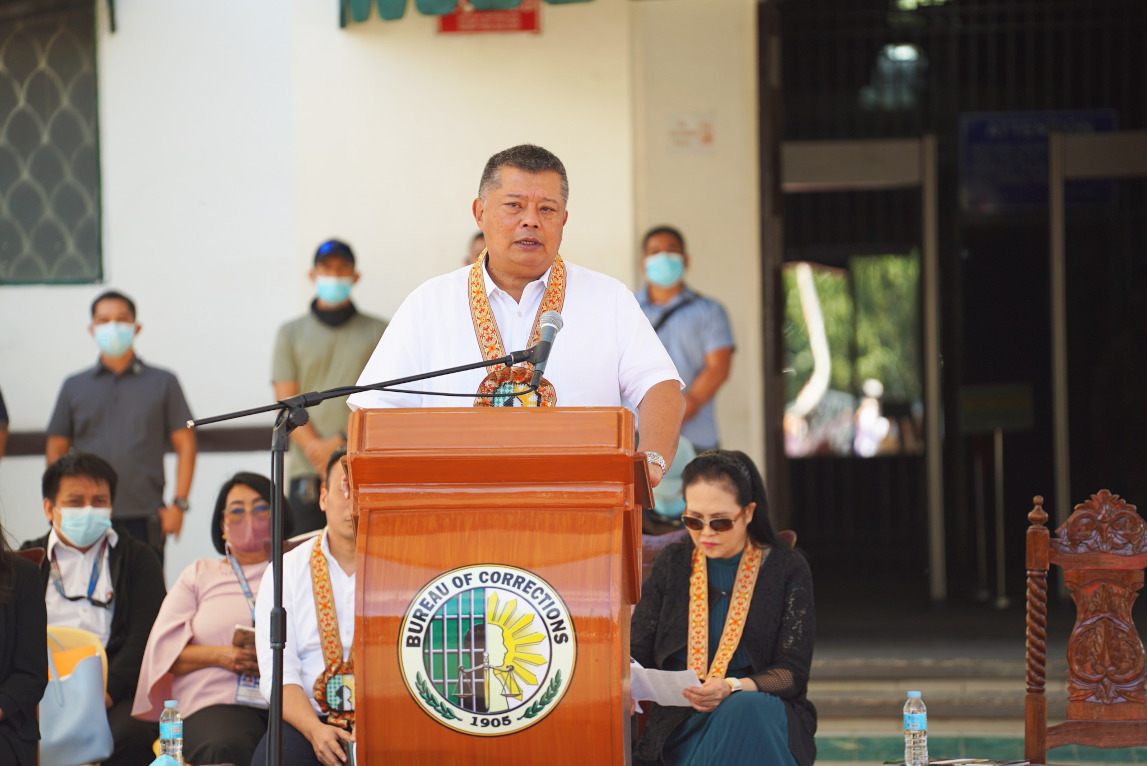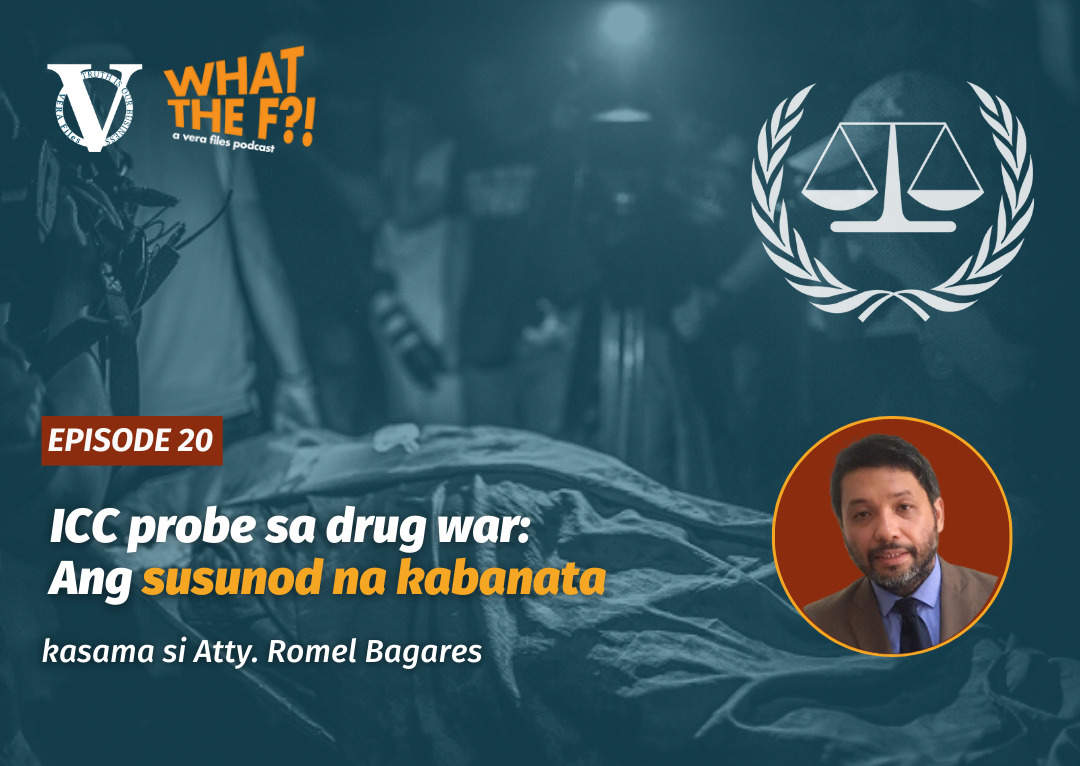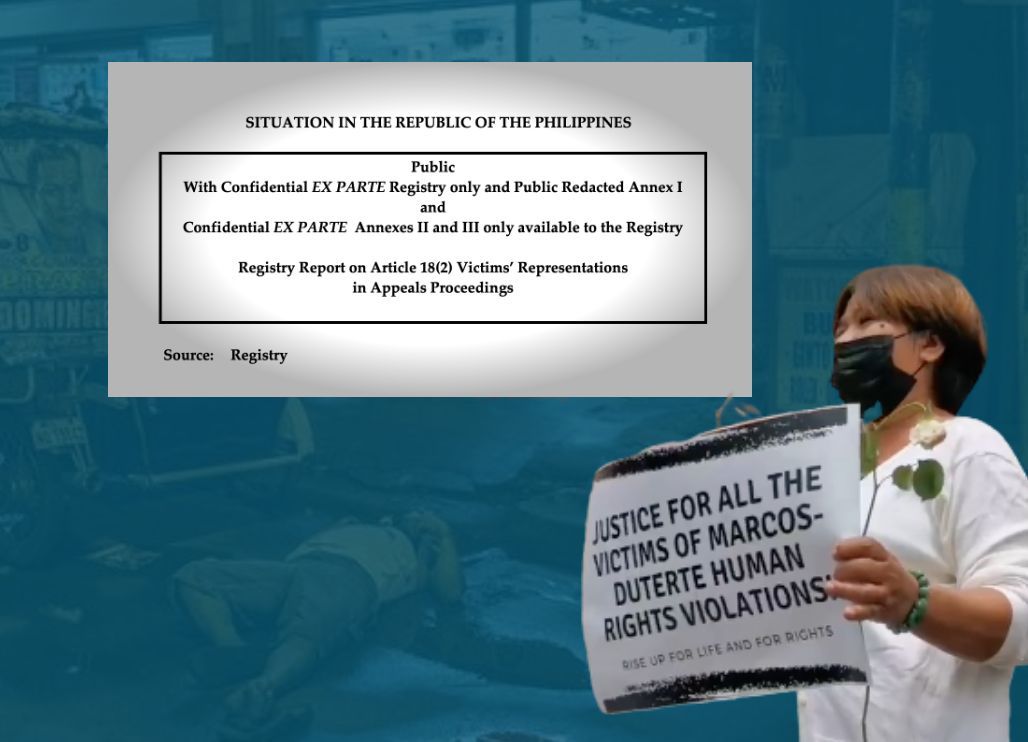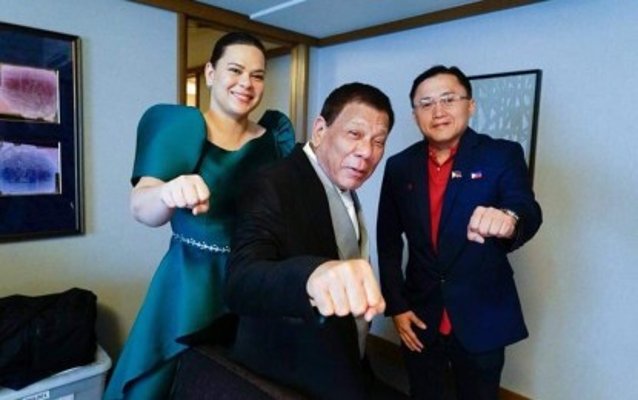The Philippine government has failed to convince International Criminal Court (ICC) Prosecutor Karim Khan that it has been conducting an adequate probe on alleged crimes against humanity related to the Duterte administration’s war on drugs.
Consequently, Khan renewed his call on the Pre-Trial Chamber, a judicial branch under the ICC, to allow the resumption of his office’s investigation into the drug war, covering alleged crimes against humanity in the Philippines from Nov. 1, 2011 to March 16, 2019.
“The Prosecution respectfully submits that the new material provided by the GovPH [Philippine government], however, still fails to substantiate the existence of the claimed investigative steps in most instances,” Khan said in a 21-page public redacted document dated Sept. 22. It is his response to government’s opposition on his request to resume the drug war probe last Sept. 8.
The chamber has yet to decide on Khan’s earlier request to resume the probe, which has been suspended since November 2021 following the Philippine government’s request for the ICC prosecutor to defer to the investigation by the local agencies. (See Rights groups cheer on ICC call for resumption of probe on Duterte’s drug war; Palace ‘exasperated’)
Khan lamented that the Philippine government again failed to prove that any past or ongoing national proceedings “sufficiently mirror” the investigation his office was undertaking. “The GovPH argues that its criminal justice system generally functions well, and that certain administrative and other mechanisms may or can result in criminal proceedings,” he said.
“However, nothing in the observations nor in the hundreds of pages of associated annexes substantiates that criminal proceedings actually have been or are being conducted in anything more than a small number of cases,” the prosecutor added.
Further, he said the government failed to present substantiated investigations on crimes against humanity other than murder like torture, rape and unlawful imprisonment.
There was also no ongoing investigation into the killings by vigilante groups, including the so-called “Davao Death Squad.”
Khan started the inquiry on alleged crimes against humanity that occurred under the Philippine drug war in September 2021. (See ICC authorizes full-blown probe into Duterte’s drug war – VERA Files)
The investigation covers the deaths of 12,000 to 30,000 suspected drug personalities under the anti-drug campaign of former president Rodrigo Duterte from July 1, 2016 to March 16, 2019, as well as the vigilante killings in the Davao region from November 2011 to June 2016.
Last Sept. 8, the Philippine government submitted a 62-page document to the Pre-Trial Chamber to oppose Khan’s request for the resumption of the investigation. The document, signed by Solicitor General Menardo Guevarra and five assistant solicitors general, contended that the Philippines had a functioning criminal justice system, and that the gravity of the alleged crimes — most of which are isolated cases — did not warrant being investigated by the ICC.
The government clarified its submission of comments to Khan’s request was only out of “comity” to the chamber’s July 14 invitation. Justice Secretary Jesus Remulla previously said the Philippines has no more obligations to the ICC due to its withdrawal in 2019. (See VERA FILES FACT CHECK: Justice Secretary’s comment on ICC jurisdiction needs context)
The government did not welcome the ICC conducting an investigation. It even accused Khan of misinterpreting the evidence and predominantly relying on media reports. It said it was concerned that the court was being used by the critics of Duterte, such as former senaators Leila De Lima and Antonio Trillanes IV, for their own “political agenda.”
“Had the OTP [Office of the Prosecutor] considered the reports from the Philippine [g]overnment, as submitted previously, and scrutinized their reliability, it could have fairly concluded that there is no reasonable basis to resume the investigation …,” it said.
Khan refuted this, saying his findings and the court’s recent decisions about the Philippine situation are all based on various sources, citing reports from civil society groups, official documents, and accounts from victims and eye-witnesses. The prosecutor stressed the probe is not based on “complaints by one or a few individuals, but on a broad foundation of evidence and information.”
Further, he raised that the government cannot question the jurisdiction of the ICC with respect to the initiation of the drug war investigation because the Pre-Trial Chamber already decided that the prosecution can proceed based on “solid jurisdictional grounds.”
“This does not mean that States are never allowed to raise jurisdictional questions. Article 19(2) of the [s]tatute allows [s]tates to challenge the [c]ourt’s jurisdiction with respect to a “case”, that is, once there is an arrest warrant or a summons to appear against an individual for certain acts and crimes,” he said.
Based on the ICC rules, the ICC prosecutor can request the Pre-Trial Chamber to issue an arrest warrant or summons after gathering enough evidence and identifying a suspect. Khan has yet to name the Philippine officials or other personalities who may be charged and brought to the Netherlands-based court for trial.
Khan also doubled down on the lack of effort of the government to identify possible patterns or policy behind the alleged systematic killings in the drug war despite several considerations enumerated by the Pre-Trial Chamber in its decision to authorize the launch of the investigation last year.
“Even recognising that investigations of this kind are challenging and time-consuming, the [p]rosecution respectfully notes that the GovPH has shown no effort to pursue such leads or to otherwise establish a “firm basis” for investigation or prosecution,” he said.
Despite the government’s insistence of “isolated instances,” the prosecutor said several considerations are “more than sufficient” to prove a state policy on killings under the drug war.
Among those the court used as proof were the statements of Duterte and other government officials, the use of watch lists, and the provision of rewards or promotions for alleged physical perpetrators.
Khan again downplayed the non-criminal proceedings of the Philippine government, such as the committee created under Administrative Order No. 35, the Inter-Agency Review Panel of the Justice department, the administrative investigations by the Philippine National Police – Internal Affairs Service, and the writ of Amparo proceedings. He previously called these efforts as mere “desk review.”
“These arguments, however, fail to persuade. Regardless of what these administrative and non-penal proceedings may or could lead to, they are not themselves aimed at determining criminal responsibility,” he said.
Victims representations
The ICC also published documents related to victims’ representations. The Victims Participation and Reparations Section, an independent office under the ICC, reported in a document dated Sept. 22 that everyone who submitted their views and concerns support the resumption of Khan’s investigation.
Eight representations on behalf of 293 individuals and 366 families, including victims or relatives, said they “unanimously” stand behind the prosecutor.
“There has been no indictment or even an investigation of the persons most responsible for crafting and implementing the “war on drugs” campaign. […] Under the Marcos administration, the Philippines remains unwilling to carry out a genuine investigation into crimes against humanity,” one victim told the VPRS.
Under the VPRS rules, families of those who died from crimes punishable by the ICC are also considered victims. (See VERA FILES FACT SHEET: Five things about the ICC report on victims’ representations)
Read the report from VPRS here.
